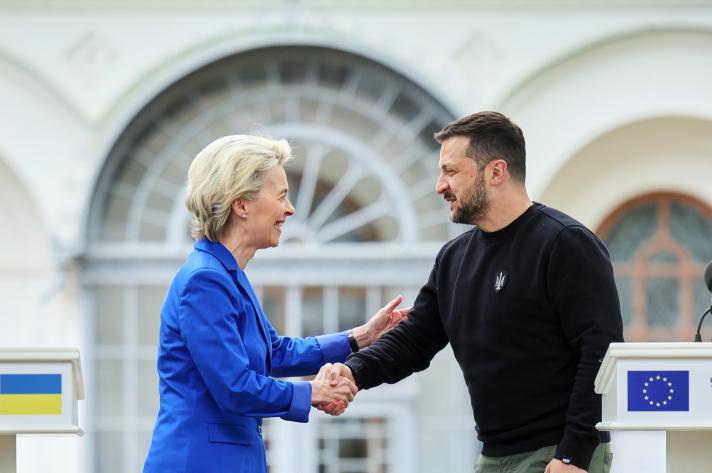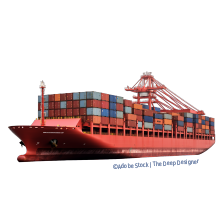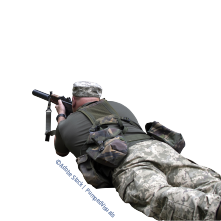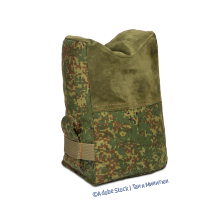In the wake of Vladimir Putin’s war against Ukraine, we have shown unwavering commitment and solidarity with Ukraine, and we have led international efforts to support its sovereignty and legitimate defence. In fact, Russia’s war has only brought the EU and Ukraine closer together: Ukraine is now an official candidate to join the EU and accession negotiations have been greenlighted upon a recommendation by the Commission.
Solidarity with Ukraine
Since the beginning of the war, we have mobilised and developed unique means of economic, humanitarian, and military assistance, bringing the total support provided by the EU and its Member States to almost €100 billion.
Our financial support has helped Ukraine to continue paying wages, pensions, keep essential services running, and restore destroyed infrastructure. To ensure that Ukraine can continue counting on the funding they need, we proposed the Ukraine Facility, which will provide Ukraine with up to €50 billion in the form of grants and concessional loans between 2024 and 2027. €6 billion in exceptional bridge financing has already been disbursed under the Ukraine Facility.
We have acted to enable Ukraine’s economy to continue functioning. Thanks to our Solidarity Lanes, we created alternative routes for Ukrainian trade when Russia blockaded transit through the Black Sea. Between May 2022 and March 2024, the Solidarity Lanes have allowed the export of 131 million tonnes of goods and the import of 50 million tonnes, with a total value estimated at around €149 billion.

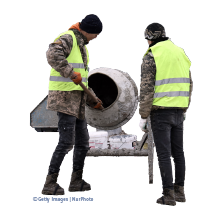
Breaking all precedents, the EU and Member States have already mobilised €32 billion in military support to help Ukraine defend itself, with over €6 billion from the European Peace Facility (EPF). The EU has allocated €11.1 billion under the European Peace Facility, including the recently adopted Ukraine Assistance Fund worth €5 billion, which will be gradually disbursed. Furthermore, the EU Military Assistance Mission for Ukraine has so far trained 47,000 Ukrainian soldiers.
Moreover, the Commission has prepared and implemented, in record time and to a record extent, 13 packages of wide-ranging sanctions against the Kremlin and its allies, to cripple their ability to finance the war.
As the invasion started, we acted to provide shelter for people fleeing the war in Ukraine and we activated the Temporary Protection Directive. Thanks to these temporary protection rules, over four million people, mainly women and children coming from Ukraine, enjoy today basic rights in the EU such as access to the labour market, medical care, and education for children.
Moreover, through the biggest ever operation under the Civil Protection Mechanism (UCPM), we have provided Ukraine with over 147,000 tonnes of aid, and we have established the medical evacuation (Medevac) system, which has enabled the evacuation of over 3,100 wounded and Ukrainian patients to hospitals in 22 European countries.
Key policies and achievements
- Giving Ukraine the means to keep the State and the economy running
- Solidarity Lanes to keep Ukraine open to international trade and to protect food security
- Supplying Ukraine with the military and technological means to defend itself
- Providing a safe haven for people fleeing the war
- Welcoming Ukraine into our European family
- Imposing sanctions to cripple Russia’s war machine and impose economic and political costs
- Holding Russia accountable for its actions and making it pay for the destruction it causes
- Ensuring Europe’s energy independence
- Supporting the EU’s defence industry and its capabilities
Giving Ukraine the means to keep the State and the economy running
Providing Ukraine with the financial means to fight the war and to keep its administration running, has been a priority for the Commission. Our support has allowed Ukraine to continue paying wages and pensions, to provide basic services in schools and hospitals, and to restore the critical infrastructure destroyed by Russia.
- In 2022, under different programmes, we provided or guaranteed up to €11.6 billion more.
- In 2023, we provided Ukraine with €18 billion of financial support through monthly, predictable payments under our Macro-Financial Assistance +. And in order to provide more stability and predictability, the Ukraine Facility will support Ukraine with €50 billion in regular payments until 2027.
- Under the Facility, €6 billion has already been disbursed in bridge financing.
- Moreover, the Commission has taken a leading role in coordinating international economic support for Ukraine, by hosting the Secretariat of the G7-led Multi-Agency Donor Coordination Platform.
We have also acted to help the Ukrainian economy work on its own. Shortly after the beginning of Russia’s war of aggression, the Commission proposed the Autonomous Trade Measures (ATM) to help alleviate the difficult situation faced by Ukrainian producers and exporters. These measures entered into force in June 2022, and they have temporarily suspended import duties, quotas, and trade defence measures on Ukrainian exports to the EU.
The main objective of the Autonomous Trade Measures is to support Ukraine’s economy, but the measures are also mindful of EU industry concerns and therefore include safeguard mechanisms to protect the Union market, if necessary.
The current Autonomous Trade Measures regulation is operational until June 2024, and the Commission has proposed to extend the measures by one year.
Solidarity Lanes to keep Ukraine open to international trade and to protect food security
As Russia blocked Ukrainian exports via the Black Sea and targeted its grain silos and warehouses, it endangered food security for hundreds of millions of people around the world. In May 2022 the Commission proposed the creation of the Solidarity Lanes, providing an alternative export route via Ukraine’s neighbouring countries. Furthermore, the Solidarity Lanes have also become the way for Ukraine to import the goods that it needs.
Between May 2022 and March 2024 the Solidarity Lanes have enabled the export of 131 million tonnes of goods, including 68 million tonnes of agricultural products mainly for export. Likewise, they have also allowed the import of around 50 million tonnes of goods into Ukraine. The total value of trade via the Solidarity Lanes since May 2022 is estimated at around €149 billion.
The Commission, together with partner financial institutions such as the European Investment Bank, the European Bank for Reconstruction and Development, and the World Bank, is investing over €2 billion in the Solidarity Lanes. This is also an investment for the long term, as improving the connectivity between the EU and Ukraine will be essential for Ukraine’s integration into the EU Single Market.
Supplying Ukraine with the military and technological means to defend itself
This Commission has led the EU into taking unprecedented steps to support Ukraine militarily. The EU and its Member States have already mobilised €32 billion in military support, out of which over €6 billion have been disbursed from the European Peace Facility. €5 billion are allocated under the new Ukraine Assistance Fund and will be gradually disbursed.
The EU also launched its largest military training mission: the EU Military Assistance Mission, which has trained so far 47,000 members of the Ukrainian military. It has made the EU the biggest training provider of the Ukrainian Armed Forces.
We have provided support to cybersecurity and resilient digital transformation in Ukraine via the EU4Digital Ukraine programme. In the wake of Russia’s cyber-attacks against Ukraine, we promoted co-operation between EU and Ukrainian cyber experts, including via regular EU-Ukraine Cyber Dialogues, and we have coordinated the provision of technical assistance, equipment, software, and relevant services, to strengthen Ukraine’s cyber resilience and cyber defence.
The EU has financed and delivered equipment for a cyber-lab, security software and hardware to the Ukrainian Armed Forces, under the European Peace Facility. With this support, Ukraine can build and further develop its cyber defence capacities to detect intrusions to the information systems, deal with cyberattacks and strengthen their overall capacity in the cybersecurity area.
Providing a safe haven for people fleeing the war
On 4 March 2022, only days after the start of the Russian invasion, the Commission proposed, and the Member States accepted, to activate for the first time ever the Temporary Protection Directive. This protected Ukrainian people fleeing the war, granting rights within the EU, including residence permits, access to the labour market and education for children. More than four million individuals have benefitted from this temporary protection, and the EU has become a safe haven for almost one fifth of Ukraine’s children.
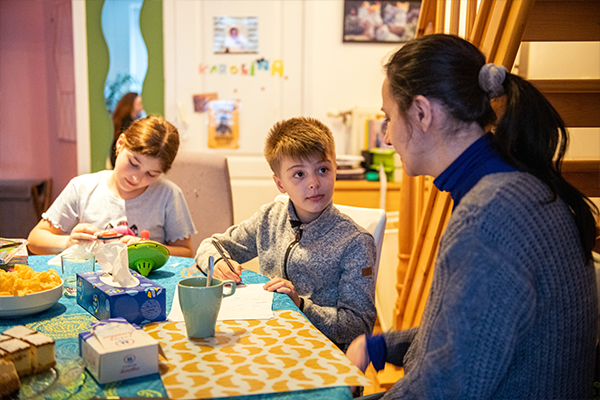
The temporary protection has been extended until March 2025.
At the same time, the Commission has made available €17 billion in additional financial support to Member States targeted to help communities receive people fleeing the war.
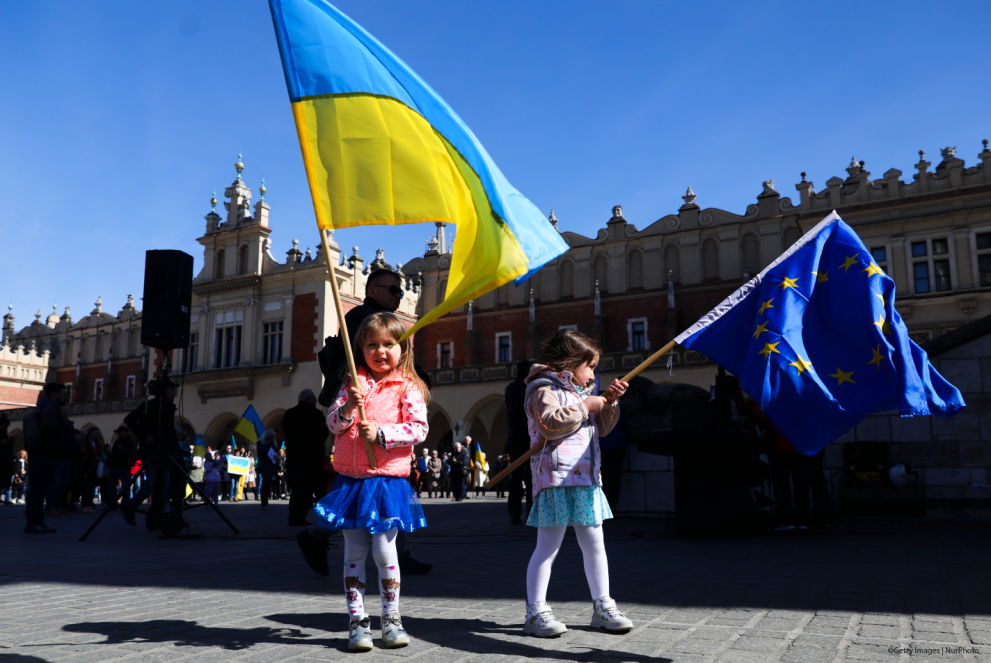
This Commission has fully supported Ukraine’s ambition to join the EU. In June 2022, the Commission recommended that Member States grant Ukraine EU candidate status and only days later the European Council agreed with our view, making Ukraine officially a candidate to join our Union.
Since then, the Commission has worked with the Ukrainian authorities to support them in their reform efforts that keep progressing despite the war and that are aligning their country ever more closely to EU standards. This work allowed the Commission in 2023 to recommend that we start formal accession negotiations, to which the European Council agreed in a historic decision in December of the same year.
In March 2024, the Commission finalised its draft Negotiating Framework for accession negotiations.
Furthermore, we are also enhancing Ukraine’s gradual integration into the EU Single Market.
Already, in order to foster Ukraine’s European aspirations and to facilitate its integration, we have worked to associate Ukraine to several EU programmes, ensuring Ukrainians benefit from some of the advantages European citizens enjoy already. As of 2024, Ukraine is associated to several programmes, which include:
- Horizon Europe
- EURATOM Research and Training Programme
- Digital Europe
- Fiscalis
- Customs
- Creative Europe
- EU4Health
- LIFE
- the Single Market Programme
- the Union Civil Protection Mechanism
- the Connecting Europe Facility, and
- the Union Anti-Fraud Programme
- the Justice, Citizens, Equality, Rights and Values Programme.
In April 2022, we facilitated an agreement between several European and Ukrainian telecommunication operators to mutually lower their roaming rates for calls between the EU and Ukraine. The agreement was prolonged in July 2023 for 12 months covering 23 European and seven Ukrainian operators. The Commission is preparing to integrate Ukraine into the EU Roaming area, which would provide a more stable and longer-term solution.
Supporting Ukrainian small and medium-sized enterprises has also been a priority for the Commission. In early 2023, we launched the “ReadyForEU” initiative to provide Ukrainian small and medium-sized enterprises affected by the war with financial support, and to allow new Ukrainian entrepreneurs to gain business experience in other European countries through the “Erasmus for Young Entrepreneurs - Ukraine” programme.
Imposing sanctions to cripple Russia’s war machine and impose economic and political costs
The EU has agreed and imposed 13 wide-ranging sanctions packages against Russia and its supporters.
We have coordinated closely with our partners bilaterally and in multilateral fora like the G7 and we have worked to ensure that sanctions target Russia’s war economy, whilst minimising negative effects on the EU economy.
Furthermore, our measures do not affect agrifood exports from Russia to third countries, thereby minimising the impact on world food security. Likewise, restrictions exclude products related to health and pharmaceuticals in order not to harm the Russian population. Meanwhile, our measures do target those outside Russia who support its aggression (Belarus, Iran) and those who help with the circumvention of EU sanctions.
The Commission has supported Member States in enforcing sanctions, which remains a national competency. We are working closely with national authorities on addressing circumvention risks by providing guidance and legal clarity.
We are also acting to prevent that third countries are used for sanctions circumvention. The Commission appointed in December 2022 an International Special Envoy for the Implementation of Sanctions, who is leading diplomatic outreach and constant engagement with third countries to reduce the risk of circumvention and strengthen cooperation with our partners.
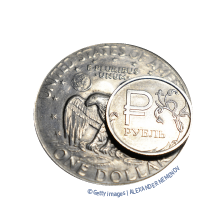

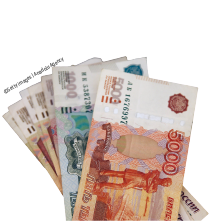
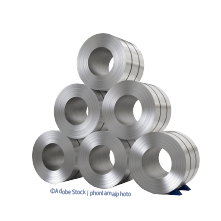
So far, EU sanctions apply to over 2 000 individuals and entities and over €28 billion of their private assets are immobilised in the EU.
Among those sanctioned are top political representatives, high-ranking regime and army officials, oligarchs, military and propagandists, proxy authorities installed in the occupied territories, persons and entities operating in the Russian IT sector, and key figures involved in the illegal deportation of Ukrainian children to Russia.
Current EU financial sanctions cover 70% of the Russian banking system’s assets. Cutting Russia’s access to the EU’s capital markets directly impacts its economy.
The EU has imposed assets freezes and financing bans on a number of Russian banks and we have excluded them from the SWIFT system, the world’s dominant financial messaging system.
Furthermore, we have immobilised assets held in the EU by the Russian Central Bank, estimated at over €200 billion.
We estimate that 58% of the EU’s exports to Russia before the invasion, and 61% of pre-war imports are covered by our sanctions.
Trade sanctions include restrictions on the imports and exports of goods, notably we put in place a ban on all finished and semi-finished steel products, an internationally coordinated diamond ban, and bans in areas in which Russia is vulnerable due to its high dependency on EU supplies.
We extended export controls on dual-use goods to target sensitive sectors in Russia’s military industrial complex, and we limited Russia’s access to crucial advanced technology, such as drones and software for drones, software for encryption devices or semiconductors and advanced electronics, among others.
The export ban on EU technology items has made Russian technology-intensive industries shrink. The decline in the production of cars, other transport equipment and computers has been particularly steep. And to disrupt Russia’s aviation sectors, we also imposed a ban on exports, sales, supply or transfer of all aircraft, and a closure of EU airspace to all Russian-owned, registered or controlled aircraft, including private jets of oligarchs.
The EU has hit Russia’s fossil fuels sector hard. We have banned the import of seaborne crude oil and refined petroleum products from Russia. Since about half of Russia’s total oil exports used to go to the EU (€71 billion in 2021), the impact has been significant.
Additionally, price caps agreed with the international G7+Price Cap Coalition have reduced the revenues Russia earns from oil and have helped stabilise global energy markets. The price caps prevent EU operators, for example, from providing transport or insurance services for the transport of Russian oil above the fixed price.
Furthermore, we completely stopped imports of Russian coal and liquified petroleum gas, and we banned the export of specific refining and liquefaction technologies from the EU, preventing Russian from maintaining and developing further its refining and LNG facilities.
Holding Russia accountable for its actions and making it pay for the destruction it causes
So far, EU Member States have immobilised over €28 billion of assets belonging to almost 2 000 Russian and Belarussian individuals and entities. To bolster the effectiveness of these measures, co-legislators have agreed on our proposal to strengthen the rules for the recovery and confiscation of assets and to harmonise criminal offences and penalties for the violation of restrictive measures, such as failing to freeze assets, breaching travel bans, and providing prohibited financial services. This work is coordinated by the Freeze and Seize Task Force.
Member States estimate that more than €200 billion of Central Bank assets are currently immobilised in the EU, while still generating interest and revenue that could be used to support Ukraine’s economy. In December 2023, the Commission and the High Representative made a proposal to set aside that extraordinary revenue arising from the management in the EU of immobilised Russian Central Bank assets. In February 2024, Member States reached agreement on our proposal.
In March 2024, the Commission and the High Representative adopted a new proposal to use those extraordinary profits for the benefit of Ukraine, with immediate focus on financing military equipment, and with a medium- and longer-term perspective of supporting the recovery and reconstruction of the country.
We also remain at the forefront of efforts to ensure accountability in the context of Russia’s aggression against Ukraine. The atrocities that Russia has committed in Bucha, Izium, and elsewhere cannot go unpunished.
The EU and the Commission are providing support to the Ukrainian authorities and to the Ukrainian Prosecutor General in the collection of evidence and training of investigators via the EU Advisory Mission in Ukraine and via Eurojust. We also reinforced Eurojust’s mandate, so that it can collect, preserve and share the evidence of war crimes, as it might be difficult to preserve it in Ukraine due to the current security situation.
The Commission supported and contributed to the establishment of the International Centre for the Prosecution of the Crime of Aggression against Ukraine (ICPA) in The Hague, hosted by Eurojust, with the objective to coordinate efforts to collect, preserve and store evidence for future trials. It also supported the establishment of the Register of Damage at the Council of Europe as first step toward a comprehensive international mechanism for providing compensation to victims of Russian aggression.
We also provide funding to the International Criminal Court for the investigation that it is carrying out in Ukraine for crimes committed by Russia since 2014.
Ensuring Europe’s energy independence
The EU has significantly reduced imports of Russian fossil fuels, quickly finding alternative suppliers, speeding up deployment of renewable energy, and reducing the EU’s overall gas consumption. We have also started the joint purchase of gas from reliable partners on the global markets via the EU Energy Platform, to which Ukraine also participates. In 2023, European buyers had access to 42 billion cubic meters of gas through the Platform.
Our action was driven by REPowerEU, a plan presented in March 2022, for the EU to collectively reduce its dependency from Russian fossil fuels, diversify energy supplies, and accelerate the transition to clean energy. REPowerEU is not only shielding the EU from an unreliable energy supplier like Russia, but also contributing to the objectives of the European Green Deal.
Supporting the EU’s defence industry and its capabilities
The war in Ukraine has shown that we need to take more responsibility for our own security and defence in order to act autonomously and secure the EU’s geopolitical role.
The Act in Support of Ammunition Production (ASAP), and the European Defence Industry Reinforcement through common Procurement Act (EDIRPA) provide an ambitious pathway for the European defence industry: ASAP will provide €500 million to support 31 investment projects with the objective of ramping-up ammunition production in the EU to two million per year by the end of 2025. The selected projects cover five areas: explosives, powder, shells, missiles, and testing and reconditioning certification. They are expected to leverage additional industry investment to reach a total of about €1.4 billion.
As for EDIRPA, with its budget of €310 million, it will incentivise Member States to jointly procure urgently needed defence products, while improving interoperability among Member States, and facilitating the integration of a European defence market. Its first calls for proposals are tentatively planned for March 2024.
The recently adopted European Defence Industrial Strategy (EDIS) and the Commission proposal for a European Defence Industry Programme (EDIP) regulation will bring support to and cooperation with Ukraine to an unprecedented level. They open unique opportunities for the Ukrainian industry to participate in the Union’s programme in support of the defence industry.


